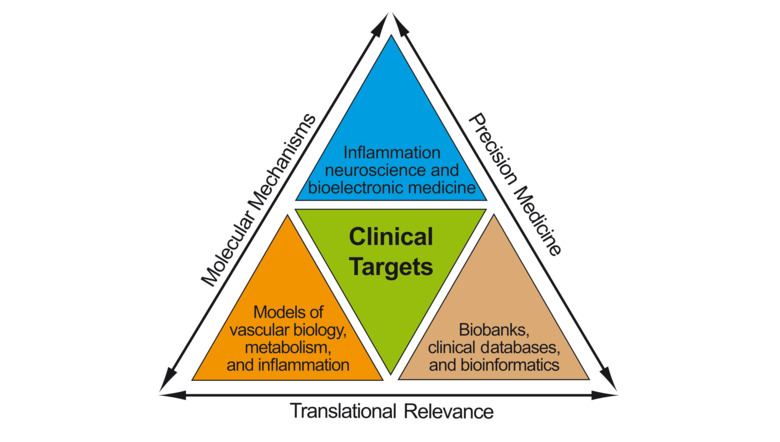Our research
Unrestrained inflammation is associated with many diseases, including cardiovascular and autoimmune diseases.
We investigate the cellular and molecular regulation of inflammation by studying interactions between peripheral nerves, immune cells, vasculature and tissues, primarily using genetic models in vivo and in vitro.

The Olofsson group combines immunology, neuroscience, vascular biology and bioinformatics and strives to define pathophysiological molecular mechanisms with clinical relevance to contribute to improved treatment and prevention of cardiovascular and inflammatory diseases.
Illustration: Laura Tarnawski.
Teams
The group consists of four teams that work with complementary perspectives on cardiovascular inflammation.
- Team Gisterå: Immunology of atherosclerosis
- Team Li: Atherothrombosis research
- Team Maegdefessel: Molecular Vascular Medicine.
- Team Olofsson: Inflammation neuroscience
Detailed cellular and molecular characterization can provide important insights into physiological mechanisms (www.proteinatlas.org).
